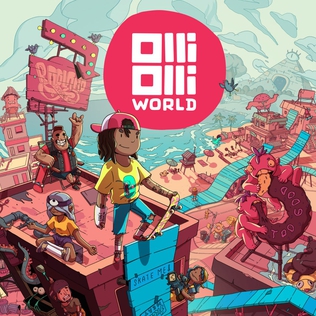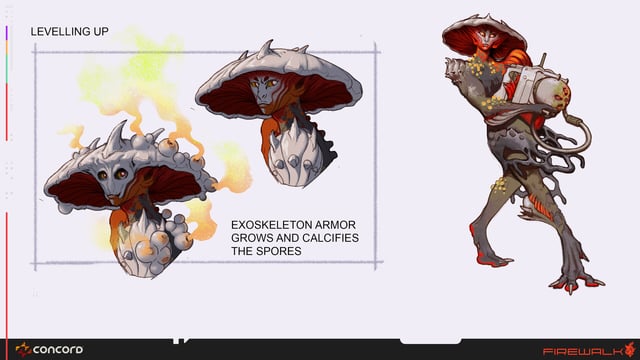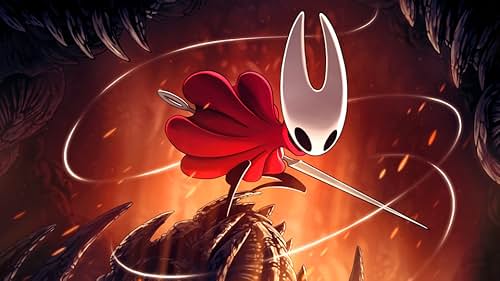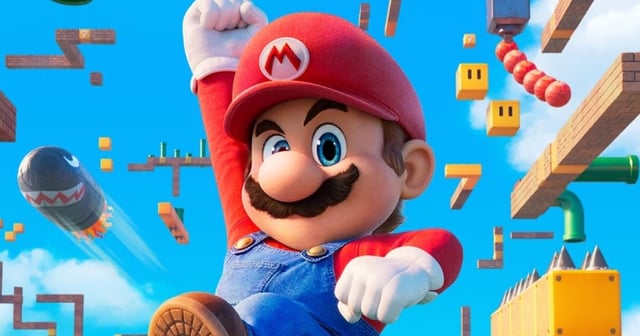The Sunset on Sunshine State: Analyzing the Roll7 Closure and Its Implications The gaming world recently felt a pang of disappointment with the announcement that Roll7, the London-based indie studio behind critically acclaimed titles like OlliOlli World and Rollerdrome, was being shuttered by its parent company, Private Division (a subsidiary of Take-Two Interactive).

The gaming world recently felt a pang of disappointment with the announcement that Roll7, the London-based indie studio behind critically acclaimed titles like OlliOlli World and Rollerdrome, was being shuttered by its parent company, Private Division (a subsidiary of Take-Two Interactive). For PC gaming enthusiasts who cherish innovation and distinctive artistic styles, this news raises critical questions about the future of indie development within larger corporate structures. As someone who's navigated the complex landscape of indie studio acquisitions, I've seen firsthand the challenges of balancing creative vision with financial realities. This article delves into the ramifications of Roll7's closure, exploring the potential pressures that can lead to such an outcome and offering insights for other studios considering the acquisition path.
A Legacy of Flow and Flair: What Roll7 Brought to the Table
Roll7 carved a unique space in the gaming landscape with its signature blend of challenging gameplay, mesmerizing flow, and vibrant aesthetics. OlliOlli World, in particular, was a masterpiece of skateboarding mechanics and joyful exploration, while Rollerdrome mashed up roller derby with arena combat in a stylish and thrilling package. These weren't just games; they were experiences that left a lasting impression. The studio's ability to consistently deliver original and polished titles made them a beloved name among indie game aficionados.
The closure of Roll7 represents more than just the loss of a development team; it signifies a potential decrease in the variety and originality of PC games available to players. When studios known for pushing boundaries and taking creative risks disappear, the gaming world becomes a little less vibrant, a little less daring.
The Acquisition Tightrope: Creative Independence vs. Financial Expectations
Acquisition can be a double-edged sword for indie studios. On one hand, it provides access to resources, funding, and marketing support that can propel a studio to new heights. On the other, it introduces the pressure of meeting the financial expectations of a larger entity, which can stifle creativity and lead to a misalignment of vision.
The tension between maintaining a unique artistic identity and satisfying a corporate parent is a constant battle. Indie studios often thrive on experimentation and a willingness to deviate from established formulas. However, larger publishers are typically more risk-averse, preferring projects with proven market appeal. This difference in philosophy can create friction and ultimately impact the types of games a studio produces.

Consider the hypothetical scenario where Roll7 was pressured to pivot away from its distinctive style towards more commercially "safe" genres. This could have diluted the studio's identity and alienated its core audience. While there's no concrete evidence to suggest this happened, it's a common concern for indie studios after acquisition.
More Than Just Numbers: The Role of Creative Misalignment
While financial performance is undoubtedly a key factor in any business decision, it's crucial to consider the possibility that creative misalignment played a significant role in Roll7's closure. Sometimes, a studio's vision simply doesn't mesh with the long-term strategic goals of its parent company. This can lead to a gradual erosion of creative autonomy and, ultimately, a decision to part ways.
It's possible that Private Division had a specific vision for Roll7 that differed from the studio's own ambitions. Perhaps they envisioned Roll7 working on different types of games, or adopting a different development approach. Whatever the specific reasons, it's clear that something didn't click, and the result was the unfortunate closure of a talented and innovative studio.

A Cautionary Tale: Lessons for Indie Studios Considering Acquisition
The closure of Roll7 serves as a cautionary tale for other indie studios contemplating acquisition. It highlights the importance of carefully considering the potential risks and rewards before signing on the dotted line.
Here are some key strategies that studios can employ to protect their creative identity after being acquired:
- Negotiate a "Creative Bill of Rights": This document should outline the studio's core values, design principles, and creative goals. It should also specify the level of autonomy the studio will retain over its projects.
- Maintain a Strong Studio Culture: A strong and cohesive studio culture can act as a buffer against unwanted interference. By fostering a sense of shared identity and purpose, studios can resist pressure to conform to external expectations.
- Prioritize Open Communication: Regular and transparent communication between the studio and its parent company is essential for building trust and resolving conflicts. Both parties should be willing to listen to each other's concerns and find mutually agreeable solutions.
- Seek Legal Counsel: Before signing any acquisition agreement, studios should seek advice from experienced legal counsel who can help them understand the implications of the deal and protect their interests.
- Know Your Worth and Walk Away: Sometimes, the best decision is to simply walk away from an acquisition offer that doesn't align with the studio's values and goals. It's better to remain independent and true to your vision than to compromise your creative integrity.

The Future of Indie Games: Navigating the Corporate Landscape
The closure of Roll7 underscores the ongoing challenges faced by indie studios in the gaming industry. As the industry becomes increasingly consolidated, it's more important than ever for indie developers to protect their independence and fight for their creative vision.
While acquisition can offer significant benefits, it's crucial to approach these deals with caution and a clear understanding of the potential risks. By prioritizing creative autonomy, maintaining a strong studio culture, and fostering open communication, indie studios can navigate the corporate landscape and continue to deliver innovative and original games to players.

Ultimately, the success of any acquisition depends on the willingness of both parties to work together in a spirit of collaboration and mutual respect. Publishers must recognize the value of creative independence and provide acquired studios with the space they need to thrive. And indie studios must be prepared to defend their vision and negotiate for the terms that will allow them to continue making the games they love.
A Final Thought
The gaming world has lost a talented studio, and the closure of Roll7 serves as a stark reminder of the challenges faced by indie developers in a rapidly evolving industry. Let's hope that this event sparks a renewed conversation about the importance of creative independence and the need for publishers to support and nurture the unique voices that make the PC gaming landscape so vibrant and diverse. The closure of Roll7 impacts game originality; we can only hope this is an isolated incident.




